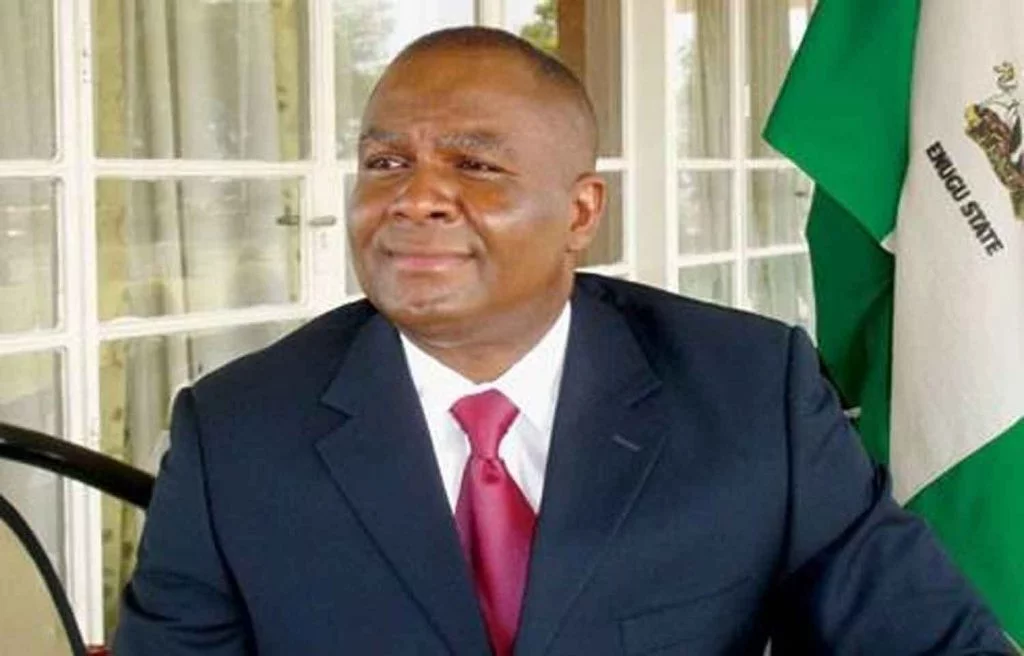Politics
Chimaroke Nnamani: What the law says on expulsion of candidate
The Peoples Democratic Party, PDP, on Friday expelled a former Governor of Enugu State, Chimaroke Nnamani from the party over allegations of anti-party activities..

Nnamani, a serving senator seeking re-election to represent Enugu East Senatorial District, has been very vocal in his support for the presidential candidate of the All Progressives Congress (APC), Bola Tinubu against the candidate of his party, Atiku Abubakar.
He intensified his campaign for Mr Tinubu after the PDP announced his suspension from the party as he called the bluff of the PDP national Working Committee, describing his suspension as a “nullity”.
Finally, the party resolved to expel him alongside seven other members of the party in Ekiti and Imo States. What makes the suspension significant is that some of them are candidates in the next election.
Going by the decision of the PDP, Mr Chimaroke and others are no longer members of the party.
However, Nnamani already challenged the legality of the action of the party by stating that in line with section 59 of the constitution of the party, only the National Executive Committee can decide on the matter, not the National Working Committee.
In a letter addressed to the National Chairman of the PDP, Iyorchia Ayu, Mr Nnamani said the decision of the party offends the procedure of disciplinary of a member of the National Assembly as provided by the PDP constitution.
Section 59 of the PDP constitution reads, “Notwithstanding any other provision of this Constitution relating to discipline, no Executive Committee at any level except the National Executive Committee shall entertain any question of discipline as may relate or concern a member of the National Executive Committee, President, Vice President, Governors, Deputy Governors, Ministers, Ambassadors, Special Advisers or member of any of the legislative houses.”
Since the presidential primary that produced Atiku as the candidate of the party, the PDP is facing an internal crisis as several governors named G5 governors, Nysome Wike of Rivers, Seyi Makinde of Oyo, Samuel Ortom of Benue, Ifeanyi Ugwuanyi of Enugu and Okezie Ikpeazu of Abia have constantly opposed Atiku.
The 1999 constitution on political party and candidate…..
The expulsion of Mr Nnamani and other candidates of the party some weeks before the general elections appears to have created some legal implications.
Section 65(2b) provides that a person shall be qualified for election under subsection (1) of this section if (b) he is a member of a political party and is sponsored by that party.”
To further protect the political party, section 68 provides that a “member of the Senate or of the House of Representatives shall vacate his seat in the house of which he is a member if—
g) being a person whose election to the House was sponsored by a political party, he becomes a member of another political party before the expiration of the period that House was elected, provided that his membership of the latter political party is not a result of a division in the political party of which he was previously a member…..
Section 221 of the constitution further provides that “No association, other than a political party, shall canvas for votes for any candidate at any election………….”
Furthermore, on the ballot, it is not Mr Nnamani’s name that will be on the ballot, but rather, the logo of the PDP.
What becomes the fate of Nnamani and others…
A legal expert, Henry Eni-Otu said the constitution cannot be read in isolation, rather it must be read alongside the electoral Act 2022 as amended. He noted that in line with the electoral act, PDP already sent the name of Nnamani to the commission as a candidate and expulsion is not one of the factors for removing a candidate.
“A political party shall not be allowed to change or substitute its candidate whose name has been submitted under section 29 of this Act except in the case of death or withdrawal by the candidate,” section 33 of the Electoral Act reads.
He noted that “Chimaroke Nnamani remains the candidate of the PDP for his senatorial district, and as it stands now, the party cannot replace him, therefore, the decision to expel him will not change his status as the candidate of the party.”
He added that the major challenge the Enugu Senator may face is that if the outcome of his election is challenged, the party may not defend him in court since they now claim he is not a member of their party.




